Diabetes management has evolved significantly over the years, with an increasing focus on natural remedies to aid in maintaining stable blood sugar levels. Before diving into the drinks that have proven benefits for blood sugar, it’s vital to understand why managing blood sugar is crucial and the role our diet plays in this.
Introduction to Blood Sugar Management
Blood sugar, also known as glucose, is the primary source of energy for our body. It’s derived from the food we consume and is used by cells for growth and energy. However, fluctuations in blood sugar levels, especially consistently high levels, can lead to health complications, including Type 2 diabetes, heart diseases, and nerve damage.
Why Blood Sugar Management Matters
Prevention of Diabetes and its Complications: Managing blood sugar levels can prevent the onset of Type 2 diabetes and reduce the risk of potential complications in those already diagnosed.
Energy Levels and Mood: Stable blood sugar levels ensure consistent energy throughout the day, preventing the highs and lows that can affect mood and productivity.
General Health and Well-being: Apart from diabetes-related complications, high blood sugar levels can impact various body organs and systems, leading to health issues like vision problems, kidney diseases, and more.
The Role of Diet in Blood Sugar Management
Our diet plays a pivotal role in managing blood sugar levels. Consuming a balanced diet with a mix of carbohydrates, proteins, and fats ensures a steady release of glucose into the bloodstream. Moreover, certain foods and drinks have properties that can naturally lower blood sugar levels:
Low Glycemic Index (GI) Foods: Foods with a low GI release glucose slowly and steadily, preventing sudden spikes in blood sugar.
Dietary Fibers: Foods high in fiber can help regulate the absorption of sugars, leading to a more gradual rise in blood sugar levels.
Natural Drinks: Some beverages can positively impact blood sugar levels, either by improving insulin sensitivity or directly reducing sugar levels in the blood.
In the upcoming sections, we’ll explore 15 of these beneficial drinks that can be incorporated into a balanced diet for better blood sugar management.
15 Drinks That Lower Blood Sugar
15. Apple Cider Vinegar
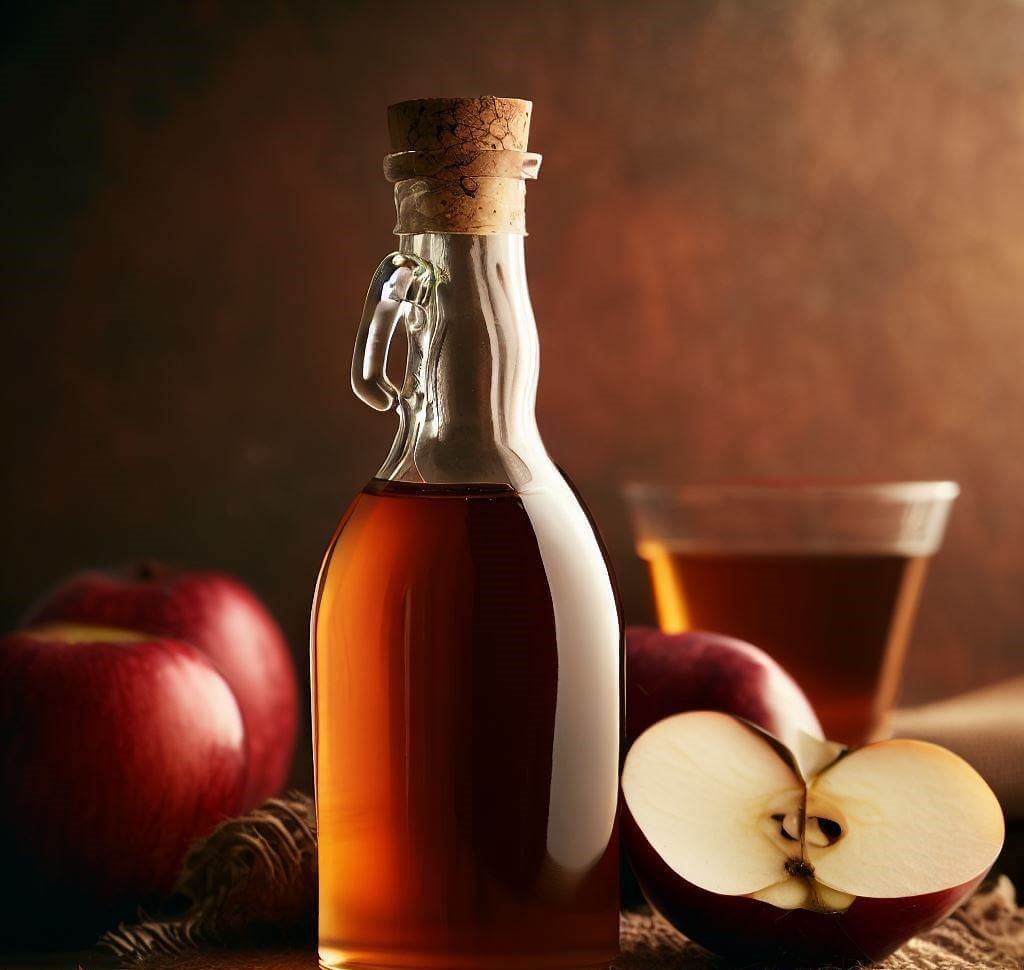
Starting our list of drinks that lower blood sugar at number 15, with a blend of tang and tradition, is the revered Apple Cider Vinegar. Often hailed as a home remedy powerhouse, this amber-colored liquid has garnered attention in the realm of diabetes management.
The association between apple cider vinegar and blood sugar control stems from some promising research. A meta-analysis focused on patients with type 2 diabetes indicates potential benefits, especially when looking at fasting blood sugar and HbA1c levels.
If you’re keen to integrate this tangy tonic into your routine, ensure you choose the organic, unfiltered version that comes with the “mother” culture. This ensures you’re getting the full spectrum of benefits.
However, a few words of caution:
- Individuals with kidney concerns or ulcers should steer clear.
- Overconsumption might lead to reduced potassium levels or erode tooth enamel.
- As with any dietary change, it’s a smart move to consult with a healthcare professional before hopping on the apple cider vinegar bandwagon.
14. Cinnamon Tea
At number 14, we immerse ourselves in the warm, aromatic embrace of Cinnamon Tea. This spice, commonly reserved for culinary delights, emerges as a beacon for diabetes control.

Scientific literature brings to light cinnamon’s capabilities in enhancing insulin activity and combatting oxidative stress—a boon particularly for those navigating type 2 diabetes.
Crafting your brew is a breeze. Just infuse half a teaspoon of cinnamon powder into warm water, and voila, your therapeutic tea is ready to sip.
However, tread with mindfulness:
- Excessive cinnamon or prolonged consumption of cinnamon supplements may tread into liver-damaging territory.
- A shopping tip for the discerning consumer: Opt for Ceylon cinnamon. It’s a step above the commonly found Cassia cinnamon, primarily because of its significantly reduced coumarin levels.
13. Black Coffee

Elevating our morning routines and securing the 13th spot is Black Coffee. Beyond its ability to jolt us awake, this dark drink bears benefits that resonate with diabetes management. Modern scientific literature applauds the polyphenols housed in black coffee.
They’ve been associated with a diminished risk of type 2 diabetes, mainly through their dual action—reducing carbohydrate absorption and enhancing glucose uptake into cells.
For the optimal health jolt, keep your coffee pure. This means sidestepping sweeteners, syrups, and even milk.
Here’s some food (or rather, drink) for thought:
- Not everyone processes caffeine with ease. Overindulgence might lead to palpitations or disrupted sleep.
- For those with a heightened sensitivity to caffeine, here’s a nugget of advice: Go for Arabica coffee beans. These beans promise a smoother flavor profile, are less acidic, and are gentler on caffeine-sensitive individuals compared to their Robusta counterparts.
12. Green Tea
Steeping in at number 12 is the time-honored Green Tea. Renowned across continents, this subtle brew serves up an array of health benefits that transcend its calming essence. Green tea’s rich tapestry of polyphenols transcends basic refreshment—it’s an active player in reducing the risk of type 2 diabetes.
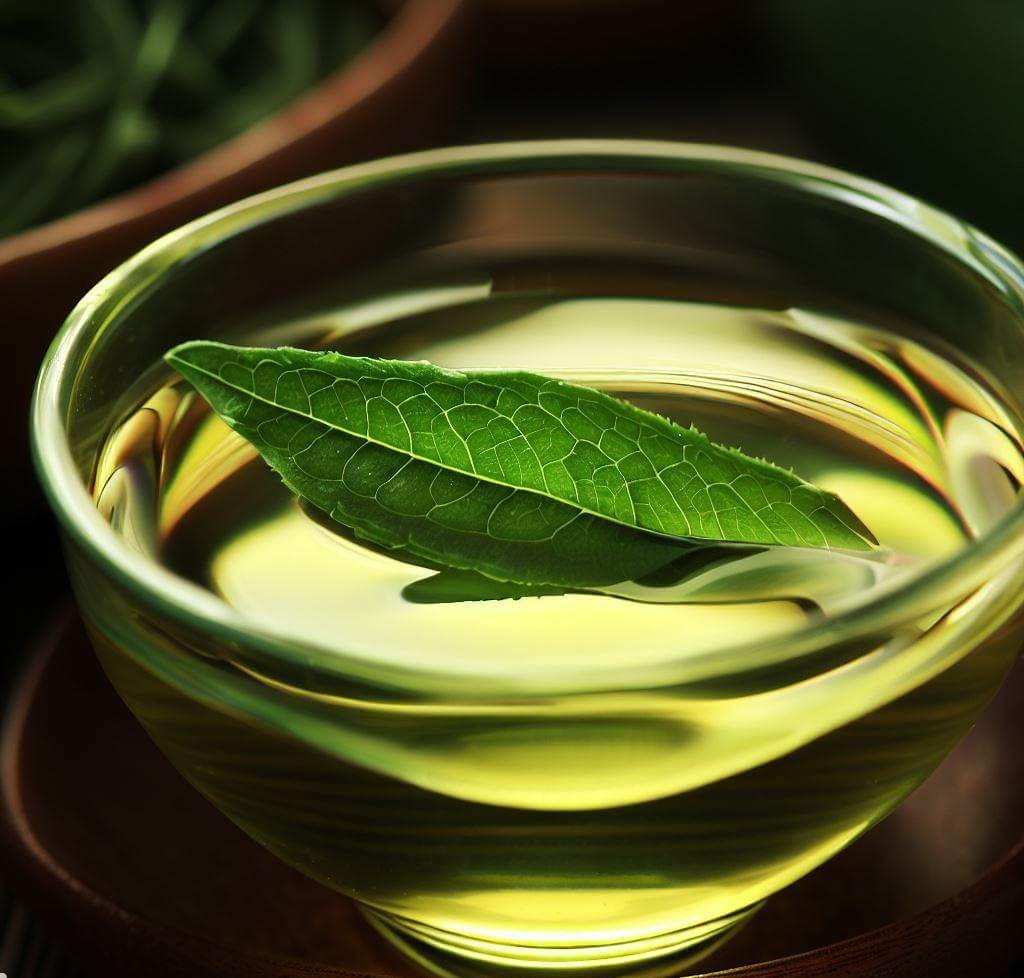
Want to tap into its full spectrum of benefits? Consider integrating about six cups daily into your routine. And if you’re looking to up the ante, Matcha might just be your pick. A powdered variant of green tea, Matcha boasts a more concentrated polyphenol profile, magnifying those coveted health perks. The range of benefits green tea offers is vast—be it curtailing inflammation, placating those rampant stress hormones, or enhancing insulin receptivity.
However, keep these in mind:
- Some individuals might jostle with caffeine-induced jitters, digestive discomforts, or even subpar iron absorption.
- To truly honor your health, select a high-quality organic whole leaf green tea.
11. Ginger Tea
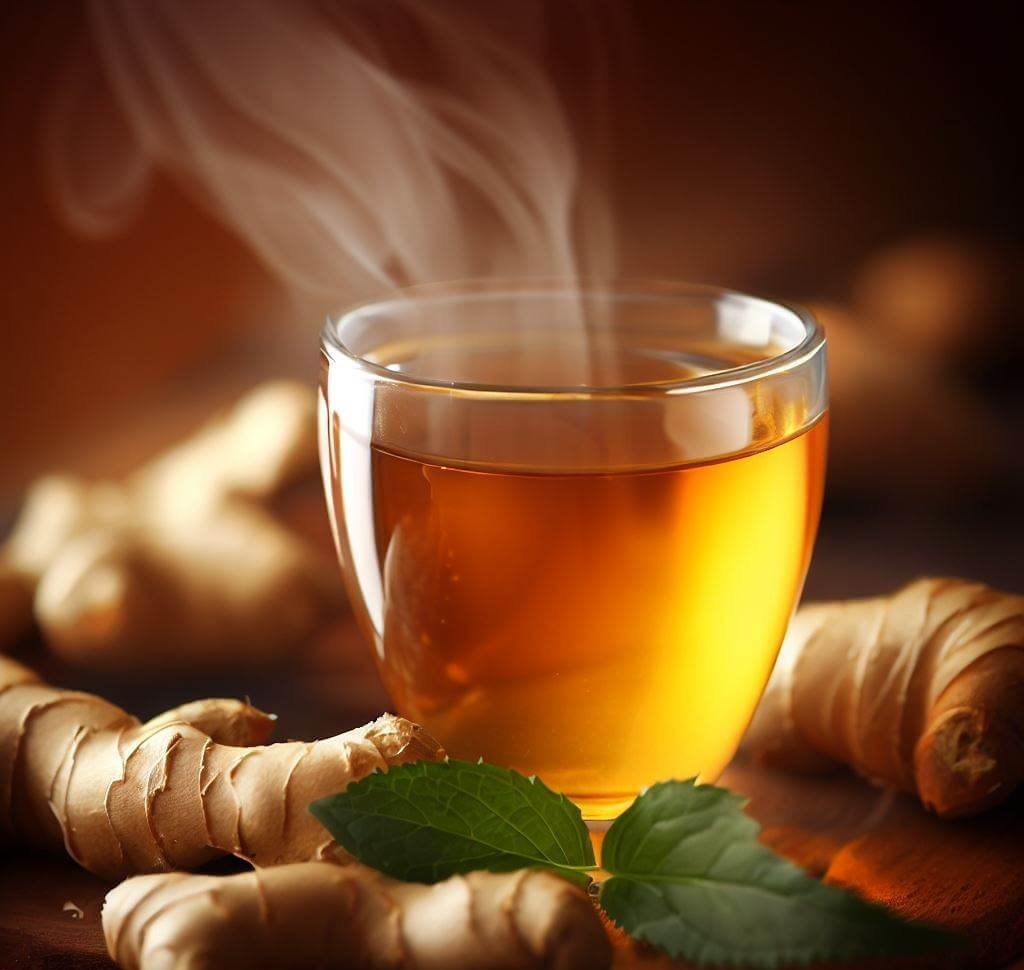
Capturing the 11th spot with its zest and zeal is Ginger Tea in our 15 drinks that lower blood sugar. This fiery infusion is more than just a delightful sensory experience—it’s a reservoir of health benefits. The magic lies in gingerols, potent components that work behind the scenes to modulate fasting blood sugar and amplify insulin responsiveness.
Numerous studies stand testament to ginger tea’s capabilities. Notably, its consumption after feasting on a white bread meal can act as a shield against those erratic sugar surges.
But, ginger tea isn’t universal. Here’s what to note:
- Its intense flavor profile might not sit well with all, causing digestive disturbances or even allergic reactions in some.
- Engaging in a dialogue with your doctor is prudent if you’re juggling multiple medications.
- Envision ginger tea as a strategic player on your holistic diabetes management team.
10. Green Smoothies
Making a splash at number 10 are the vibrant Green Smoothies. They’re essentially nature encapsulated in a glass—a liquid ode to vitality! These verdant concoctions are a stellar strategy to elevate your dietary fiber, micronutrient, and hydration levels.
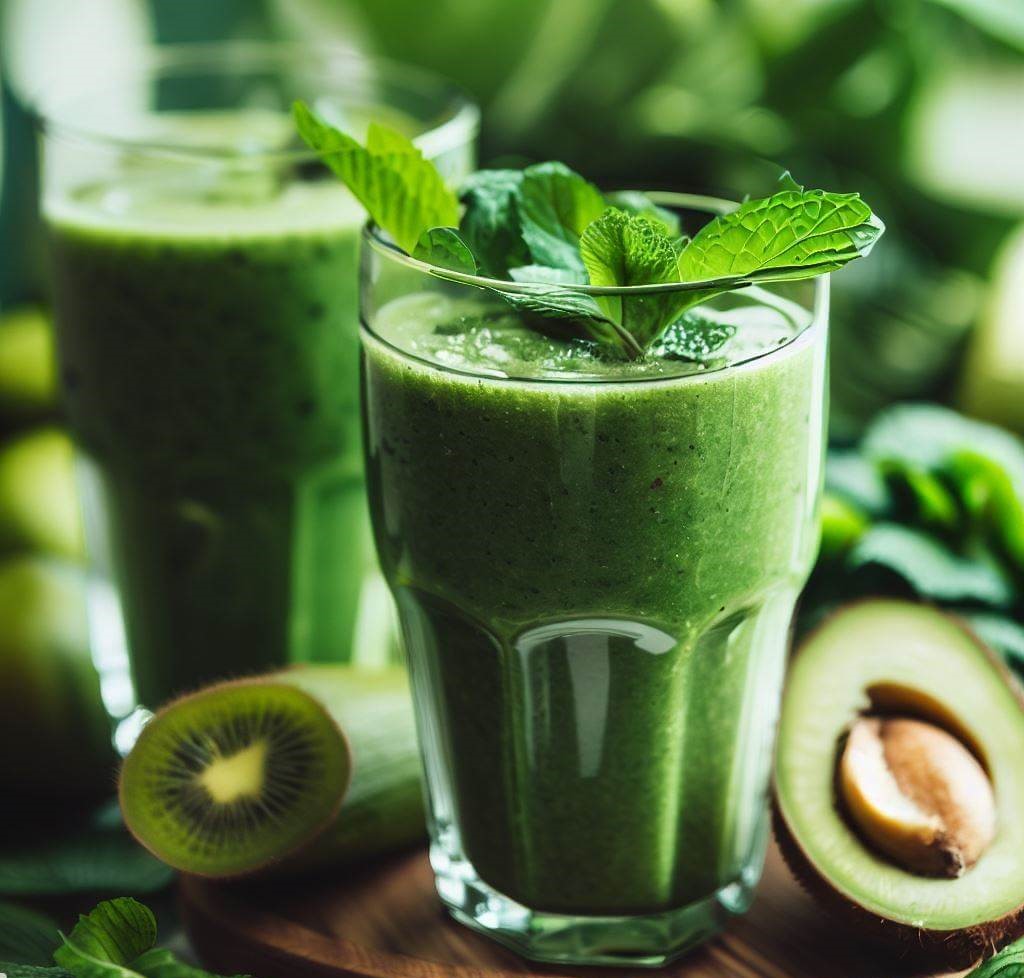
By sprinkling your smoothies with power-packed greens, like spinach or kale, you’re ensuring a daily dose of vital vitamins and antioxidants. Crafting these concoctions at home with pristine ingredients guarantees you’re imbibing nature’s finest.
But, nature’s elixirs come with caveats:
- Those venturing into the world of green smoothies should remain vigilant about components such as oxalates and goitrogens. Spinach, for instance, harbors oxalates that, in excess, could rain on your parade by leading to kidney stones in predisposed individuals.
- A simple solution? Consider lightly cooking or steaming such vegetables to neutralize potential threats.
- Always remember, when in a conundrum, your best bet is to engage with a healthcare expert.
9. Kombucha
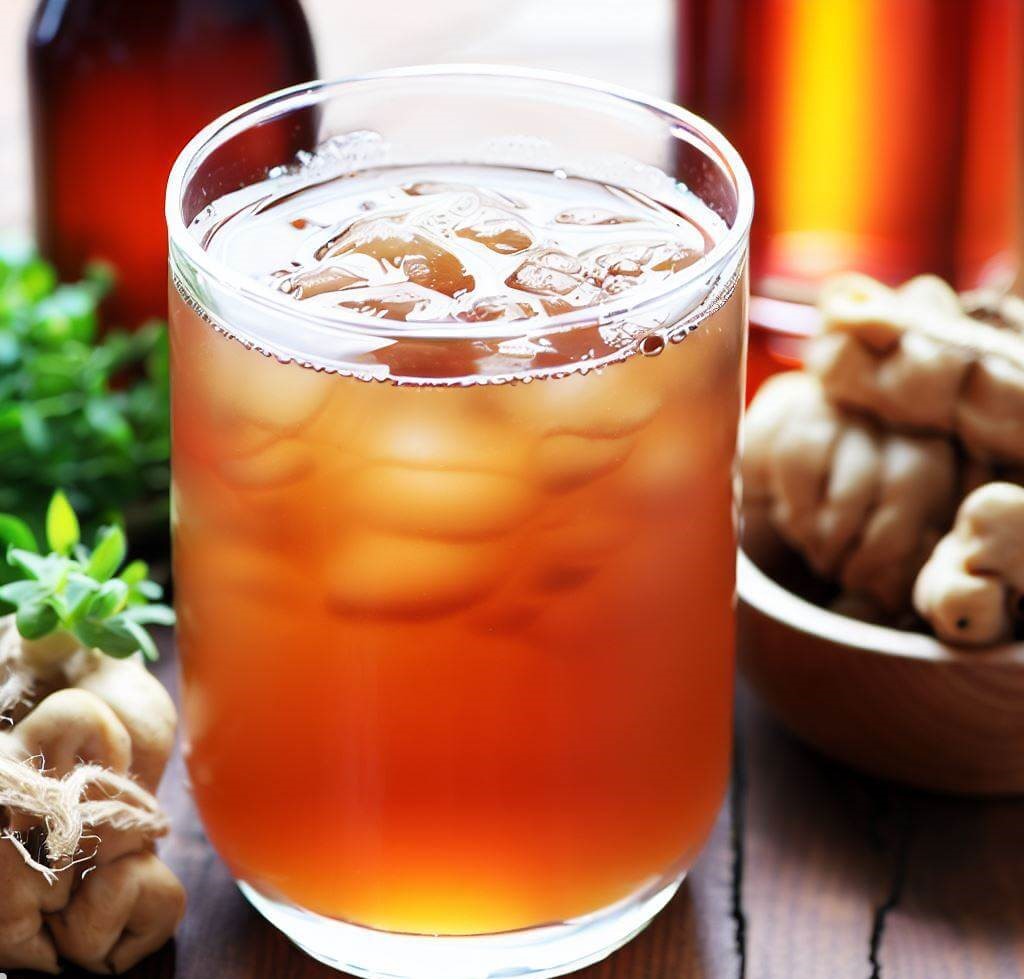
Taking the ninth spot with a splash of fizz is Kombucha. Heralded as the Immortal Health Elixir, this tea, fermented to perfection, presents a medley of probiotics known to rejuvenate gut health.
For those navigating the maze of type 2 diabetes, Kombucha emerges as a potential ally. Its reservoir of probiotics diligently bolsters insulin responsiveness while putting up barriers against insulin resistance. Plus, with just around seven grams of carbs per serving, it’s a drink that seamlessly dovetails with low-carb regimens.
However, it’s not all bubbles and joy. Here’s what to consider:
- Its inherent acidity can jostle with some, especially those with sensitive stomachs.
- And yes, that tantalizing fizz? It’s due to fermentation, which occasionally spawns trace alcohol levels. This spells caution for expectant mothers, those in recovery from alcohol addiction, or individuals on strict alcohol-abstinent paths.
8. Barley Water
Securing the eighth position in our 15 drinks that lower blood sugar is Barley Water, a brew that has transcended eras. A gift from nature, Barley Water’s knack for stabilizing sugar levels can be attributed to its troves of insoluble fiber.
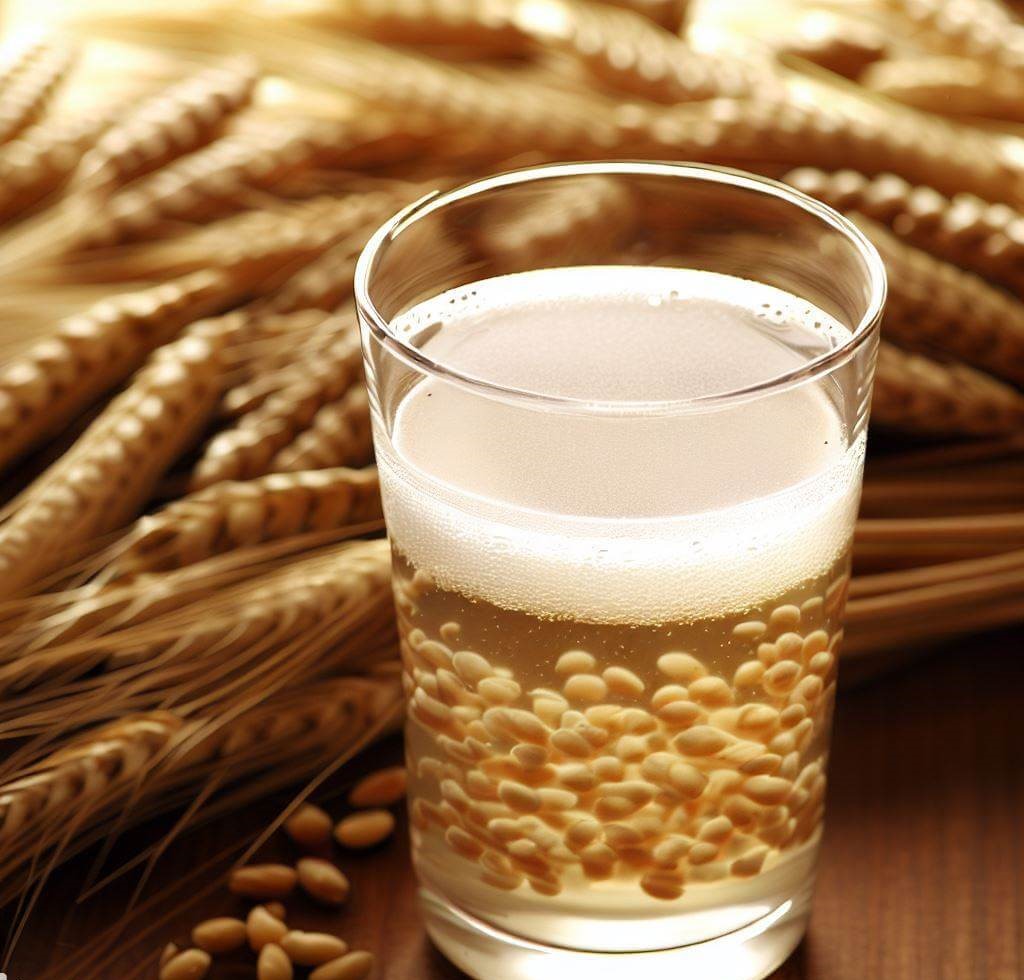
This fibrous marvel steadies digestion, ensuring a gradual, consistent absorption of sugars and carbs, averting sugar spikes. The realms of science echo its merits, drawing connections between barley consumption and bolstered diabetes control.
But here’s a word (or two) of caution:
- If you’re sensitive to barley or gluten, it’s best to proceed with mindfulness.
- And while you’re on the topic of fiber, remember, moderation is key. Ensure a progressive increase, coupled with ample water to keep any digestive disgruntlement at bay.
7. Lemon Water
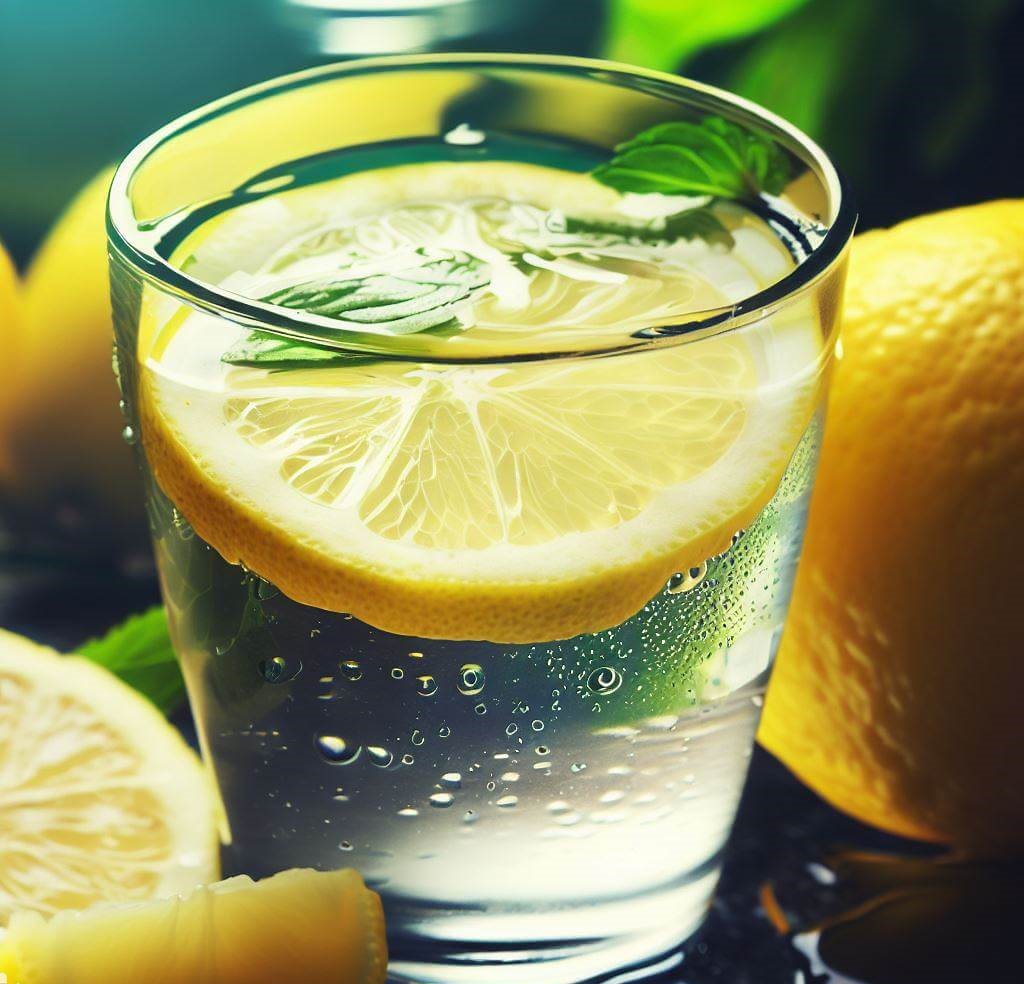
Earning the title of lucky number seven is the effervescent Lemon Water. Its humble façade conceals a spectrum of benefits. By stalling the carbohydrate-to-sugar transformation, it ensures sugar spikes resemble gentle undulations rather than treacherous peaks.
The American Diabetes Association showers accolades upon lemons, celebrating their rich fiber and vitamin C reserves. The lemons’ low glycemic footprint, combined with polyphenol presence, amplifies insulin sensitivity while bestowing antioxidant prowess.
However, a note to remember:
- Lemon Water is a supportive member of the broader diabetes management ensemble, not a solo act.
6. Chamomile Tea
Gracing the sixth position with its serenity is Chamomile Tea. Its reputation for taming blood sugar fluctuations isn’t just anecdotal; it’s anchored in scientific scrutiny. A particular study from the Journal of Endocrinological Investigation unveiled that regular indulgence in chamomile tea might proffer benefits for glycemic balance.
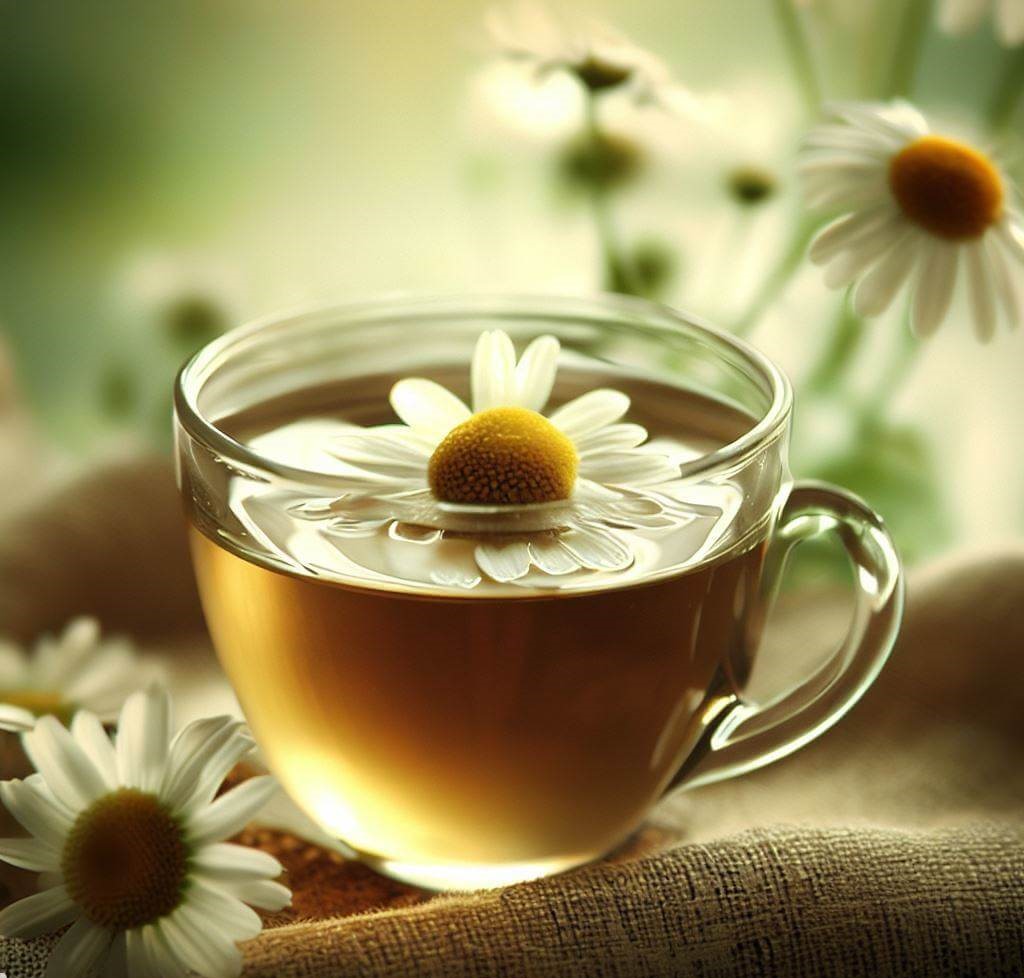
At the heart of its prowess is its potent anti-inflammatory profile coupled with antioxidants that take on the oxidative stresses related to diabetes. Brewing it is a piece of cake—steep dried chamomile blooms in piping hot water for a good 5 minutes, strain, and voila! It’s a tranquil potion fit for any hour.
5. Bitter Melon Juice
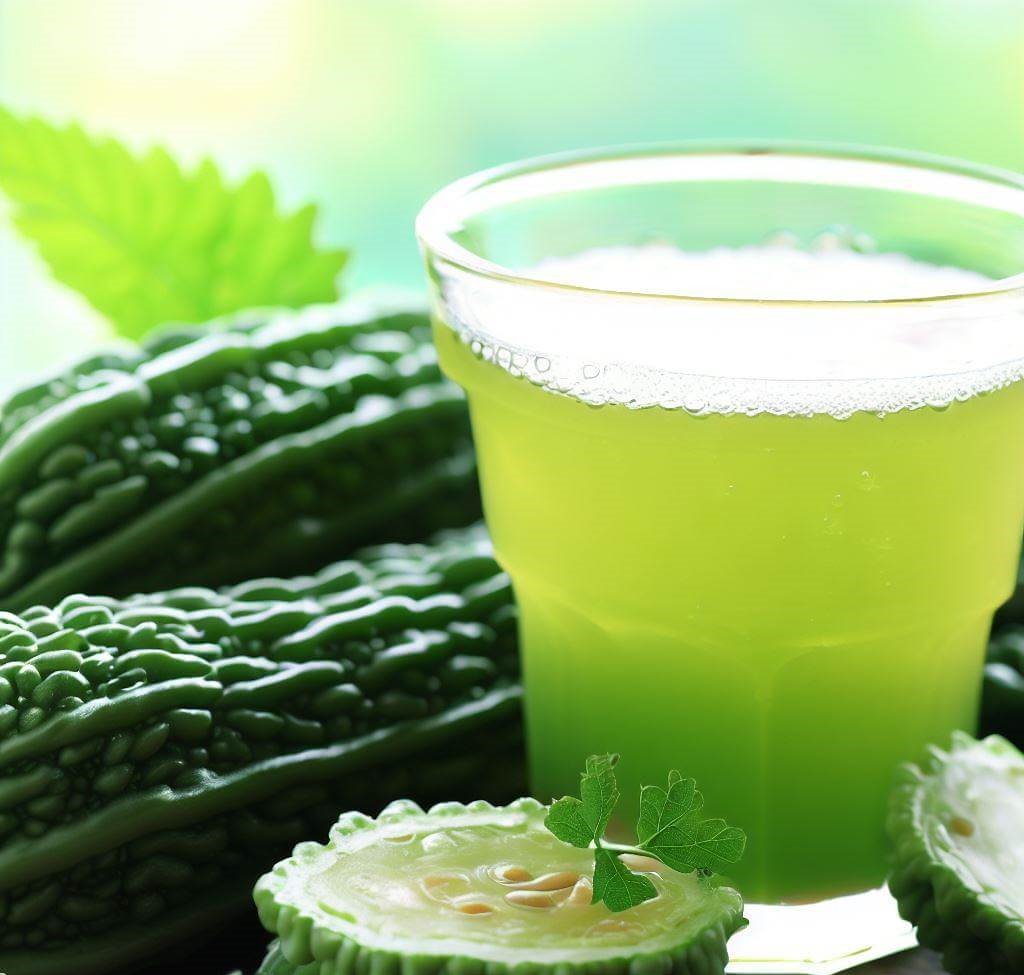
Earning the fifth position in our lineup is the unassuming Bitter Melon Juice. Its reputation may be deceiving due to its characteristic bitter taste, but the potential health benefits of this juice are anything but.
The Journal of Ethnopharmacology has spotlighted this juice for the compounds it harbors: charantin, vicine, and polypeptide-p. These very compounds are instrumental in its hypoglycemic attributes, contributing to potential blood sugar reduction.
How to Craft the Perfect Potion? Take a bitter melon, ensure it’s cleaned and free of seeds, and blend it with water until it reaches a velvety consistency. Straining ensures you’re left with just the juice. For those who may wince at the bitterness, a splash of lemon or a hint of apple can transform it into a balanced, drinkable delight.
4. Blackberry Leaf Tea
Sliding gracefully into the fourth slot is the enigmatic Blackberry Leaf Tea. While the fruit itself garners accolades, the leaves hold their own with medicinal grandeur. Recognized by the European Journal of Nutrition, blackberry leaves are anything but ordinary.
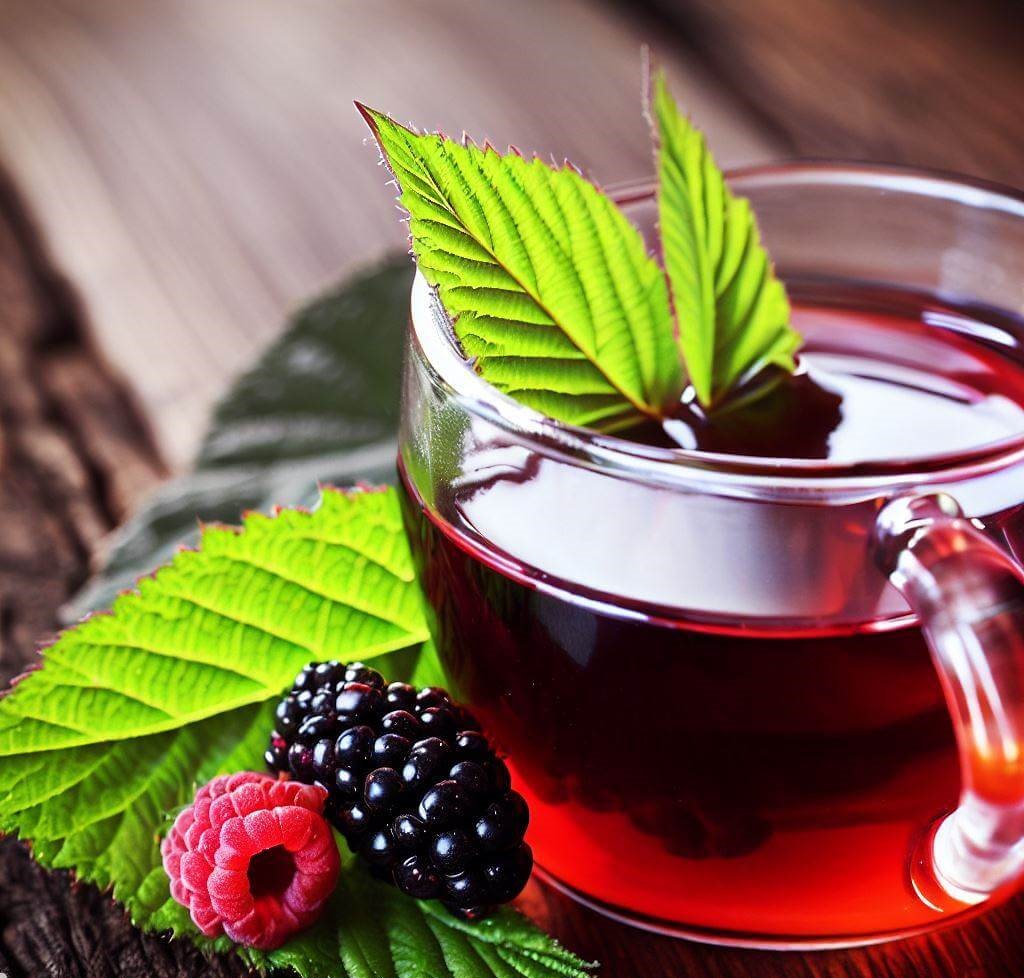
Their treasuries of flavonoids don these leaves with twofold accolades: their unparalleled antioxidant prowess and their ability to combat inflammation.
How to Brew this Herbal Marvel? Immerse dried blackberry leaves in boiling water, letting them release their magic over a period of ten minutes. Straining not only separates the leaves but unveils a brew that melds refreshment with restorative nuances. For those with a sweet tooth, a whisper of honey can dance beautifully with the tea’s inherent tanginess.
3. Red Ginseng Tea
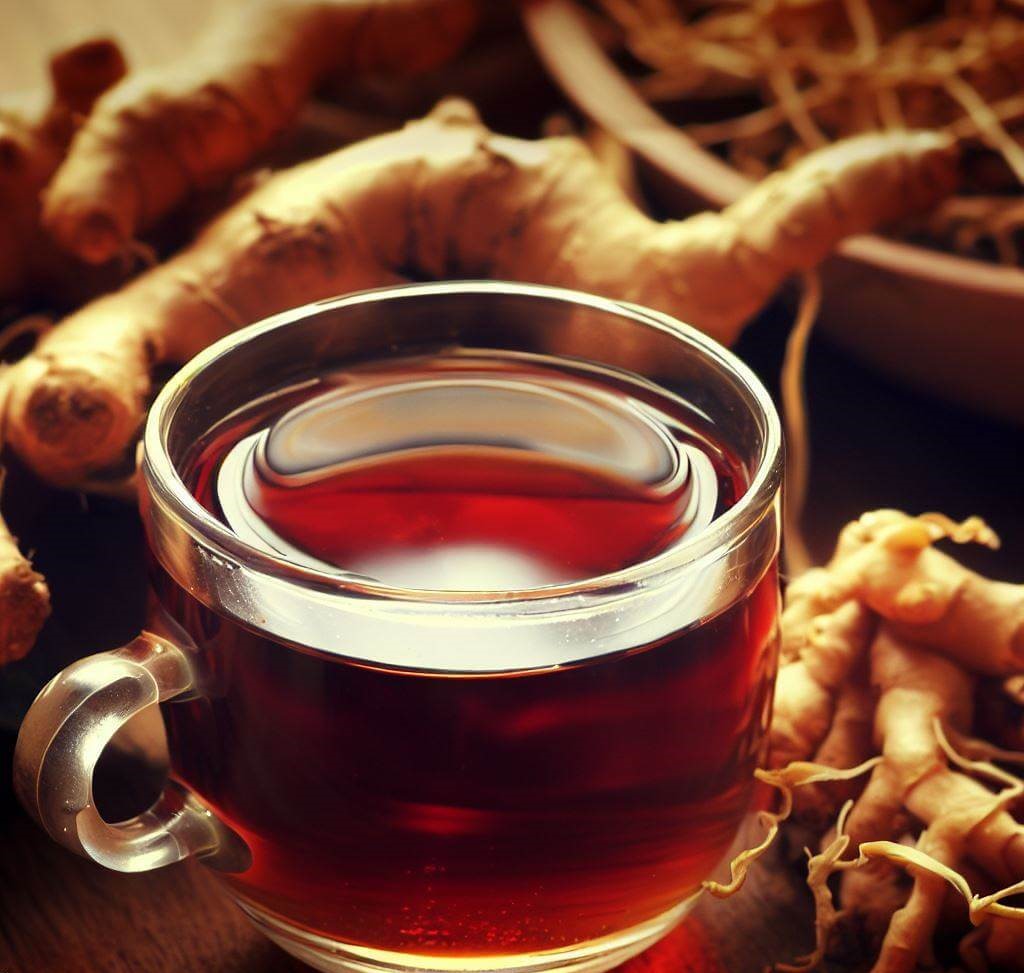
Commanding the third position with ancient gravitas is the revered Red Ginseng Tea. This isn’t just any ginseng. Processed meticulously to differentiate it from its Panax ginseng brethren, Red Ginseng shines as a beacon in blood sugar modulation.
Echoing its merits, The American Journal of Chinese Medicine delves into its potential to rev up insulin sensitivity and mitigate diabetes-related concerns. Spearheading these virtues are the ginsenosides molecules, celebrated as the vanguards of the tea’s antidiabetic arsenal.
Embarking on the Red Ginseng Journey: Embrace its rich, earthy tones by immersing slices of red ginseng root in boiling water. A ten-minute wait rewards you with an infusion that’s as profound as it is palate-pleasing. To elevate the experience, consider a dollop of honey or a splash of lemon, enhancing its complex flavor profile.
2. Aloe Vera Juice
Occupying a coveted second spot on our chart is the age-old favorite, Aloe Vera Juice. Beyond its well-documented prowess in skincare, aloe vera presents itself as a promising ally in the battle against high blood sugar.
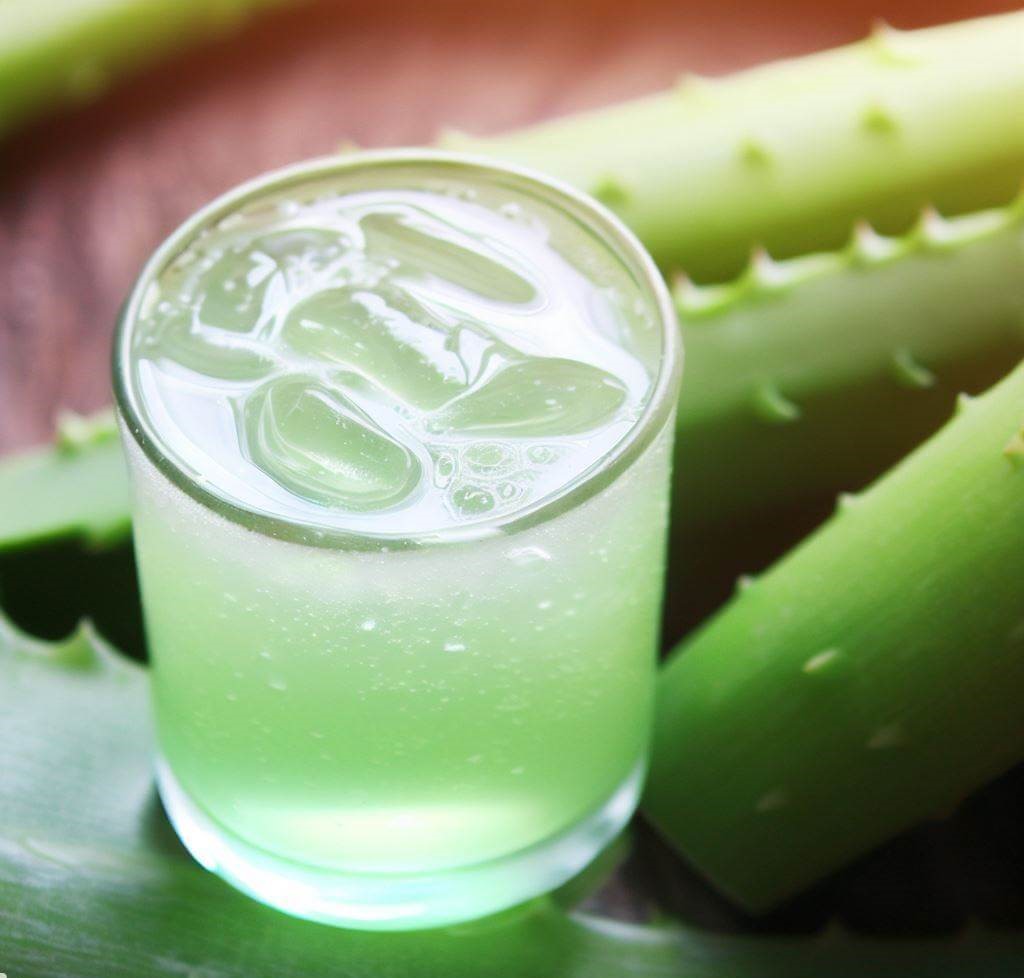
Multiple studies have delved into its inherent compounds, notably the lectins and polysaccharides, and their subsequent effects. These compounds, equipped with potent antidiabetic properties, play a critical role in enhancing insulin sensitivity and fostering increased glucose uptake. The end result? A notable dip in blood sugar levels.
But Every Rose has its Thorn:
Venturing into aloe vera’s embrace is not without caveats. Consuming this juice, especially in excessive quantities or over extended durations, can introduce a range of side effects. It’s not uncommon for individuals to experience bouts of diarrhea, encounter abdominal discomfort, or grapple with disturbances in their electrolyte balance. It underscores the timeless mantra: moderation is key. And as with all health endeavors, integrating aloe vera juice into one’s regime should be a part of a holistic strategy—one that encompasses a balanced diet, regular physical activity, and judicious use of medications or supplements.
1. Fenugreek Seed Water
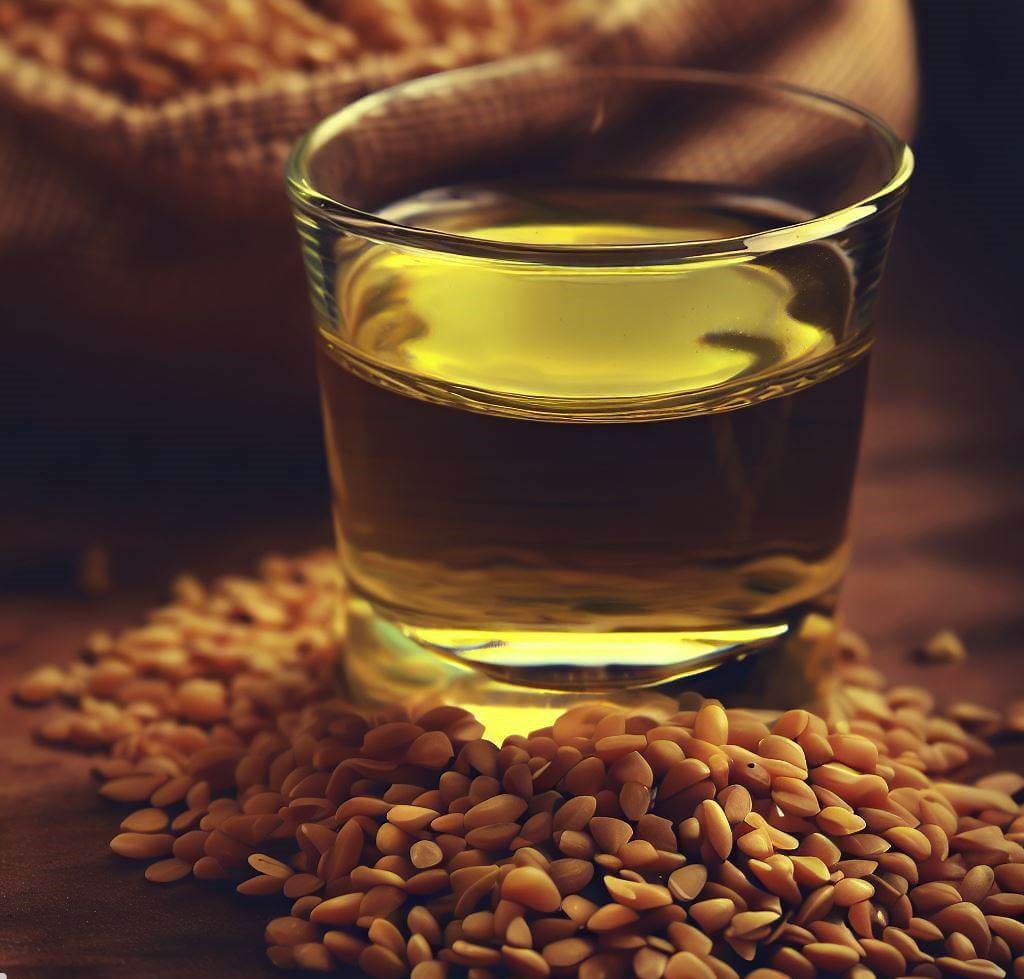
And now, the crown jewel, the unrivaled numero uno on our list: Fenugreek Seed Water. Fenugreek seeds aren’t just culinary additions; they’re repositories of age-old wisdom and health legacies. Their reputation in traditional medicine is not without basis, having been vouched for by myriad generations.
But the modern world seeks evidence, and the International Journal for Vitamin and Nutrition Research delivers, casting fenugreek seeds in the spotlight as potent natural warriors against type 2 diabetes.
Unraveling the Fenugreek Mystique:
What transforms these seemingly modest seeds into diabetes combatants? It’s their rich fiber content. This fiber operates with finesse, slowing the digestion process and meticulously moderating the absorption rate of carbs and sugars. But the fenugreek marvel doesn’t end here. Consuming its water not only enhances the body’s proficiency in sugar utilization but it also bestows a health makeover on your lipid profile. This means, in addition to blood sugar control, you’re also looking at lowered cholesterol and triglyceride levels—truly a holistic health boon!
Simple Ritual, Profound Benefits:
Integrating fenugreek seed water into one’s routine is as effortless as soaking 10 grams of the seeds in hot water. This elixir, consumed daily, promises a tapestry of health benefits that are both immediate and enduring.
The Power of Natural Drinks in Managing Diabetes
Diabetes, a modern-day health challenge, has many grappling for solutions, eager to regain control over their health without being overly dependent on medication. It’s here that nature’s bounty offers respite. The drinks we’ve explored—from Green Tea to Fenugreek Seed Water—testify to the fact that nature, in its wisdom, has bestowed upon us an array of tools to tackle and manage this condition.
Natural drinks come with a multi-pronged approach. Not only do they possess potent compounds that directly affect blood sugar levels, but they also contribute to overall well-being by offering antioxidants, aiding digestion, improving insulin sensitivity, and providing other essential nutrients.
In essence, when wielded wisely, these natural drinks can be invaluable allies in the journey towards optimal health, showcasing that sometimes, the best remedies have been with us all along, waiting to be discovered and embraced.
We’ve just walked you through 15 amazing drinks that lower blood sugar levels naturally. If you want a quick reference or a refresher, we’ve condensed all of this valuable information into a short video below. It’s the perfect guide to keep you on track with your blood sugar management.
FAQs
1. Can I replace my diabetes medication with these natural drinks?
While these drinks offer various health benefits, it’s crucial not to view them as direct replacements for prescribed medications. Always consult with a healthcare professional before making any changes to your medication regimen.
2. How often should I consume these natural drinks?
The frequency of consumption may vary depending on the drink and individual health conditions. It’s advisable to follow the recommended dosages and consult with a nutritionist or doctor for personalized guidance.
3. Are there any side effects of consuming these drinks?
Yes, some drinks may have side effects, especially if consumed in large amounts or for extended periods. For instance, aloe vera juice can cause digestive issues, while excessive green tea might affect iron absorption. It’s essential to be informed and monitor your body’s responses.
4. Can these natural drinks cure diabetes?
No, these drinks are tools to help manage and possibly alleviate some symptoms of diabetes. They are not cures. Proper diabetes management requires a holistic approach that includes diet, exercise, medication (if prescribed), and regular monitoring.
5. Is it okay to mix multiple drinks in a day?
While it’s possible to enjoy a variety of these drinks, moderation is essential. It’s also crucial to be aware of the cumulative effects and possible interactions. When in doubt, always turn to a healthcare expert for advice.





